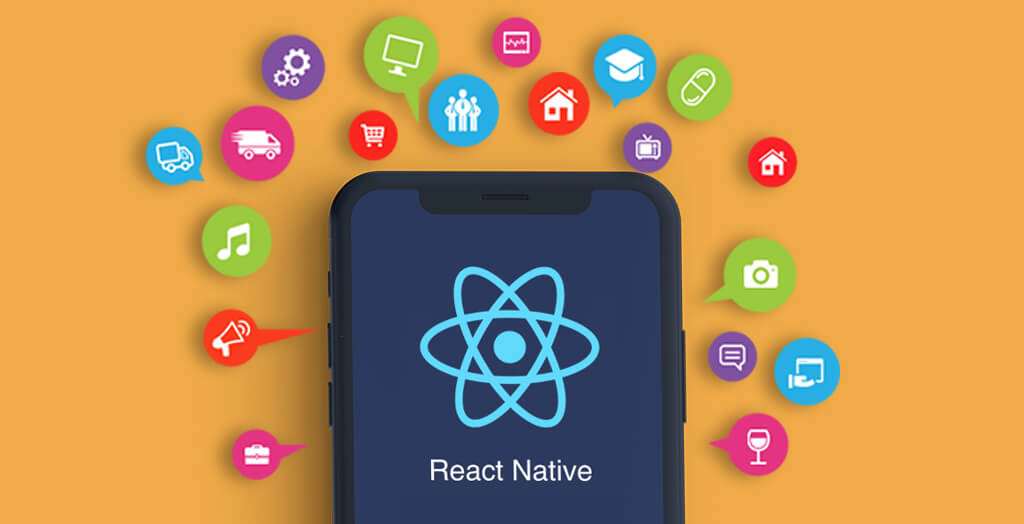Introduction
In today’s rapidly evolving business landscape, disruptive innovation has become the hallmark of success. Businesses that challenge the status quo and embrace innovation are the ones that thrive. Among the myriad tools available, mobile apps stand out as catalysts for industry disruption. These powerful tools not only redefine customer interactions but also reshape entire markets, revolutionizing the way industries operate. When seeking to capitalize on this potential, finding the best mobile app development services becomes pivotal, ensuring the transformational power of innovation is harnessed effectively.
Understanding Industry Disruption
Industry disruption refers to the transformation of established markets and industries by innovative technologies, business models, or services. Disruptive innovations often start small but gradually gain momentum, fundamentally altering the competitive landscape. Classic examples include Uber revolutionizing transportation and Netflix reshaping the entertainment industry.
- Characteristics of Disruptive Innovations: Disruptive innovations typically start by serving an underserved market segment, offering products or services at lower costs or with improved convenience. They might seem inferior initially but eventually outperform established solutions.
- Example: Uber started as a simple app connecting riders with drivers, catering to a previously underserved market for on-demand transportation.
- Impact of Disruption: Disruptive innovations challenge conventional market norms, forcing established players to adapt or face obsolescence. They often democratize services or products, making them accessible to a wider audience.
- Example: Netflix disrupted the traditional TV and movie rental model, offering streaming services at a fraction of the cost, thereby reshaping the entertainment industry.
The Power of Business Apps
The evolution of mobile apps has been staggering. What once began as simple utilities has evolved into sophisticated platforms driving businesses across various sectors. Business apps offer a multitude of benefits, from enhancing customer engagement and streamlining operations to expanding market reach. Take Starbucks, for instance, whose app not only facilitates orders but also fosters customer loyalty through rewards.
- Evolution of Business Apps: Initially serving basic functions, modern business apps now offer multifaceted solutions. They provide seamless experiences, engaging users beyond conventional transactions.
- Example: Starbucks’ app allows users not only to order but also to earn rewards, fostering a sense of loyalty and encouraging repeat purchases.
- Benefits of Business Apps: The versatility of apps enables businesses to engage customers in personalized ways, optimize operations, and extend market reach beyond geographical limitations.
- Example: Retail apps like Amazon provide personalized recommendations, enhancing user experience and driving sales.
Identifying Industry-Specific Needs
Before diving into app development, understanding industry-specific needs is critical. Each industry has its unique challenges and requirements. A user-centric approach involves conducting in-depth research to tailor the app to address these specific pain points. For healthcare, it might mean focusing on data security and patient convenience, while for retail, it could be about enhancing the shopping experience.
- Market Research: Comprehensive research helps identify the pain points and preferences of the target audience, enabling businesses to offer tailored solutions.
- Example: Healthcare apps prioritize data security due to sensitive patient information, requiring robust encryption and compliance with industry standards.
- Customization for Industries: Different sectors demand specific features and functionalities to meet their unique needs, requiring customized solutions.
- Example: Retail apps focus on user-friendly interfaces and quick checkout processes to enhance the shopping experience.
Steps to Develop Your Business App
Developing a successful business app involves meticulous planning and execution. The process begins with a thorough planning phase where objectives, features, and the target audience are defined. Selecting the right development tools and platforms is crucial. Tools like Flutter, React Native, or native development options provide different advantages depending on the project’s requirements. The development process includes design, coding, testing, and deployment, all pivotal stages demanding attention to detail and user experience. Engaging the expertise of top mobile app developers is crucial for ensuring the success of the project. Hire top mobile app developers to ensure proficiency in handling these stages efficiently and guarantee the app aligns with envisioned objectives while delivering exceptional user experiences.
- Planning Phase: A clear vision with well-defined objectives helps in creating a roadmap for app development, outlining features and functionalities.
- Example: An e-commerce app might focus on features like secure payment gateways, product catalogs, and user reviews.
- Choice of Development Tools: Different tools offer various advantages; businesses must select based on factors like scalability, user experience, and development costs.
- Example: Flutter, known for its cross-platform compatibility, might be chosen to reach a wider audience while minimizing development efforts.
Launching and Marketing Your App
Launching an app successfully requires a well-thought-out strategy. Creating buzz through teasers, utilizing social media, and collaborating with influencers can generate anticipation. App Store Optimization (ASO) is key for visibility and downloads. Additionally, continuous marketing efforts post-launch, such as user feedback integration and updates, sustain user engagement.
- Launch Strategy: Building anticipation through teaser campaigns, beta launches, and influencer collaborations boosts interest before the official release.
- Example: Apple often teases its product launches to generate excitement among its audience.
- App Store Optimization (ASO): Optimizing keywords, descriptions, and visuals on app stores maximizes visibility and downloads.
- Example: Including relevant keywords in the app’s description helps in its discoverability within the app store.
- Continuous Marketing: Post-launch efforts such as gathering user feedback and incorporating updates keep users engaged and foster loyalty.
- Example: Social media campaigns and email newsletters are common ways to maintain engagement post-launch.
Future of Industry Disruption and Business Apps
Looking ahead, the future of industry disruption through apps is promising. Technologies like AI, AR/VR, and blockchain are poised to bring further innovation. The adaptability of businesses to embrace these technologies and consistently innovate will define their success in the long run.
- Upcoming Technologies: Emerging technologies like AI-driven personalization, AR/VR for immersive experiences, and blockchain for secure transactions hold immense potential for app development.
- Example: AI-powered chatbots are revolutionizing customer service by providing immediate assistance, reducing the need for human intervention.
- Adaptability and Innovation: Businesses must remain agile, embracing technological advancements and continuously innovating to stay ahead in a rapidly evolving landscape.
- Example: Companies like Tesla continually innovate in the automotive industry by integrating new technologies in their vehicles, setting new standards for the industry.
Conclusion
In conclusion, the development of a business app holds immense potential for industry disruption. It’s a pivotal tool that empowers businesses to innovate, engage customers, and stay ahead in competitive markets. To thrive in this dynamic landscape, businesses must embrace the opportunity to develop their apps, staying agile and responsive to market changes.










